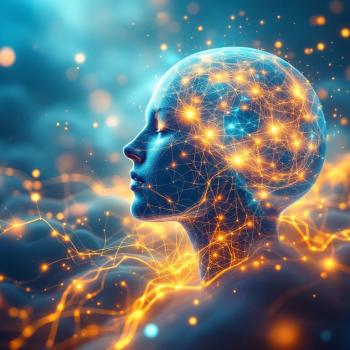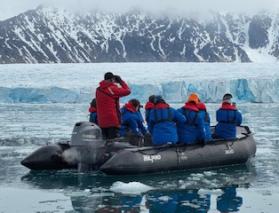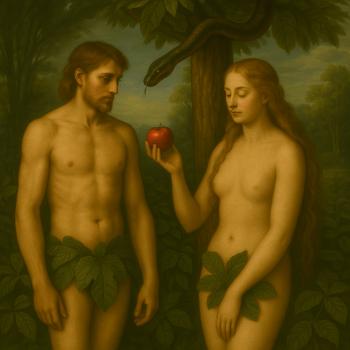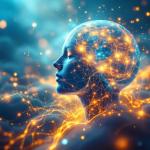Many observers conclude that self-actualization and self-transcendence are complementary.

In The Way, I opened the book with a discussion of worldviews. There are almost eight billion people on Earth, and they have different worldviews and correspondingly different religions.
Why do only two percent of the Chinese people embrace Christianity? In the East, many people believe that the Universe is eternal (not created) and cyclical (not linear). Also, many believe that Ultimate Reality (or God) is immanent in everyone and everything, so there is no separation between God and humanity (thus no concept of original sin and no need for atonement).
Some in the East believe that the self is a construct, the soul is a fiction and our free will is an illusion. Thus, there is no one to be punished or rewarded, no way to transcend our earthly bodies, and no concept of accountability for a “will” that we are NOT entirely free to exercise. (Why did I get out of bed? Why did my dog get out of bed? What is the difference?) I wrote about free will here.
The Bible makes less sense in a culture that does NOT believe in a Creator, an end time, external judgement, a personal self or unconstrained free will.
Self or No-Self?
In the West, we are preoccupied with personhood and egoic self. Our lives entail personal attainment, our politics entail personal responsibility, and our spirituality entails personal salvation.
Many Eastern observers distinguish the egoic self from the True Self. In Hinduism, the True Self is Brahman, the Absolute or the One or Ultimate Reality. In Buddhism, the True Self is no-self. Emptiness is form, and form is emptiness. The Tao and the 10,000 things co-exist. Any perceived sense of self is ephemeral and impermanent. I wrote about Zen and the self here.
Some Western seekers will NOT consider that the egoic self may be a construct (comprised of our chemistry and conditioning) or that the True Self may be no-self, ephemeral and impermanent. Beginning with Genesis, Christianity focuses on separation, rather than Oneness. Also, Christianity focuses on improving our egoic self, rather than realizing our True Self beyond our egoic self.
Worse, many churches suggest that we are damaged. Perhaps we are “intrinsically disordered,” “stained by original sin,” “totally depraved,” or predetermined for “eternal conscious torment.”
Reconciling Self and No-Self
In The Way, I wrote that Zen incorporated discipline to initially develop a sense of self, so that (with maturity) practitioners could eventually transcend this sense of self. Dr. Jack Engler, a Buddhist practitioner and a clinical psychologist, expanded on this concept in Transformations of Consciousness, a book that he coauthored with Ken Wilber and Daniel Brown:
“Both Theravada Buddhist psychology and the Western psychodynamic tradition assume that the self is a construct. Neither considers the self to be an entity. That’s very interesting, because experientially, that’s not the way the self is experienced. People assume they are some one, and that some one is a stable and unchanging reference point over time and across different states of consciousness; but in fact, when one investigates it, either scientifically or directly through introspection, the self turns out to be a construction of consciousness, moment by moment…
“Ego development is important in Western psychology, but the goal is not to solidify a sense of self. An overly solidified sense of self is a neurotic sense of self. It’s rigid, it’s inflexible, it’s maladaptive. So a Western psychodynamic therapist would work with the ideas, or the images that people have of themselves, and would try to broaden that, make it more flexible, less neurotically rigid and tight, broaden it to encompass wider and wider areas of experience.”
Engler often said, “You must be somebody before you can be nobody.”
Self-Actualization and Self-Transcendence are Complementary
Similarly, psychologist Abraham Maslow proposed a hierarchy of needs, culminating in self-realization. After he died, Maslow’s book The Farther Reaches of Human Nature came out. Here, Maslow suggested that self-actualization is NOT the final step. Once we are self-actualized, we can become self-transcendent, devoting our lives to something bigger than ourselves.
To me, “something bigger” is NOT necessarily personal or supernatural. In fact, there is NOT any objective evidence that Ultimate Reality is either personal or supernatural (or that is is NOT.) Still, even in an impersonal, natural universe, there is much cause for awe, gratitude, reverence, and a sense of responsibility.
Many observers conclude that self-actualization and self-transcendence are complementary.
If you want to keep up with the latest from You Might Be Right, please subscribe.
The Way received a 2024 Nautilus Book Award.
If you enjoyed this article, please leave a comment at the bottom of this page.
Thanks for reading You Might Be Right!!














